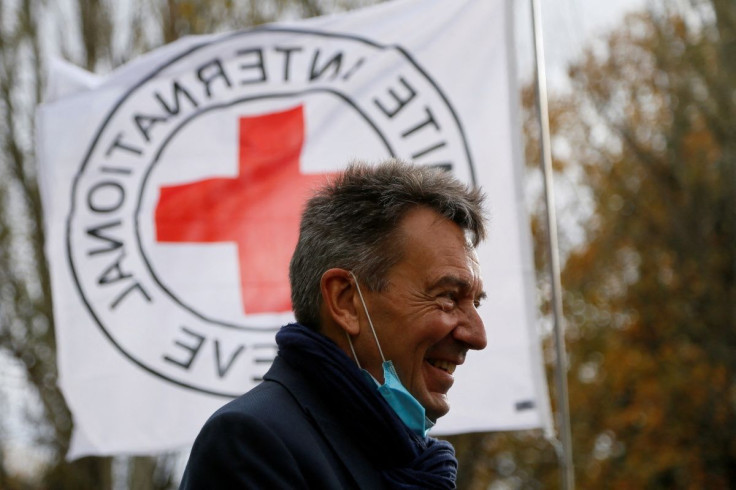Red Cross Chief 'Cautiously Positive' About Possible Prisoner Visits In Ukraine

The head of the International Committee of the Red Cross told Reuters on Tuesday that he was "cautiously positive" the ICRC would gain access to Ukrainian and Russian prisoners held in the context of the conflict.
The general staff of Ukraine's armed forces said on Tuesday that it was holding 200 Russian prisoners of war, while Russian news agencies cited Denis Pushilin, leader of Russian-backed separatists in eastern Ukraine, as saying that there were hundreds of Ukrainian PoWs.
Russia launched an invasion of Ukraine on Feb. 24.
ICRC President Peter Maurer said that based on his latest discussions with senior Ukrainian and Russian officials, they seemed to understand the neutral aid agency's work.
Maurer, asked about prisoner visits, said in an interview: "It hasn't happened yet. But I am cautiously positive from my conversations now over the last couple of days with Ukrainian and Russian interlocutors that there is a good understanding of what the legal situation is, and about the importance of ICRC having access (to detainees) and being able to do that work."
He added: "It will need security, logistics, everything in place. That's not for tomorrow, immediately. But I haven't found political objections, either from the one side or another side, to ICRC's basic and core mandate functions."
The ICRC visits people in detention centres worldwide, from Syria to the U.S. base on Guantanamo Bay, requiring private interviews with inmates to check that their treatment and conditions of detention are humane in line with the Geneva Conventions. The agency also transmits family messages.
Earlier, Red Cross agencies appealed for 250 million Swiss francs ($273 million) to provide food, water and shelter to millions of people in Ukraine, where the humanitarian situation was "deteriorating rapidly", and to those who have fled abroad. [L8N2V42KE]
The ICRC already had 600 aid workers across Ukraine, 400 of them in the eastern region of Donbass, divided between a Ukrainian government-controlled area and that held by pro-Moscow separatists since 2014.
"For eight years we had a predictable front line and we had programmes and structures in place," Maurer said. "And my biggest worry in the last two days and the next 2-3 days is basically to establish channels of communication.
"We need to be able to communicate to parties, to put them in contact. That's our classical role as neutral intermediary, to exchange information on dead bodies, on prisoners, on particularly difficult situations for civilians so that we can renegotiate a license to operate in a very complex environment."
Russia warned Kyiv residents to flee their homes on Tuesday and rained rockets on the city of Kharkiv as Russian commanders intensified their bombardment of Ukrainian urban areas in a shift of tactics after their six-day assault stalled.
© Copyright Thomson Reuters 2024. All rights reserved.





















